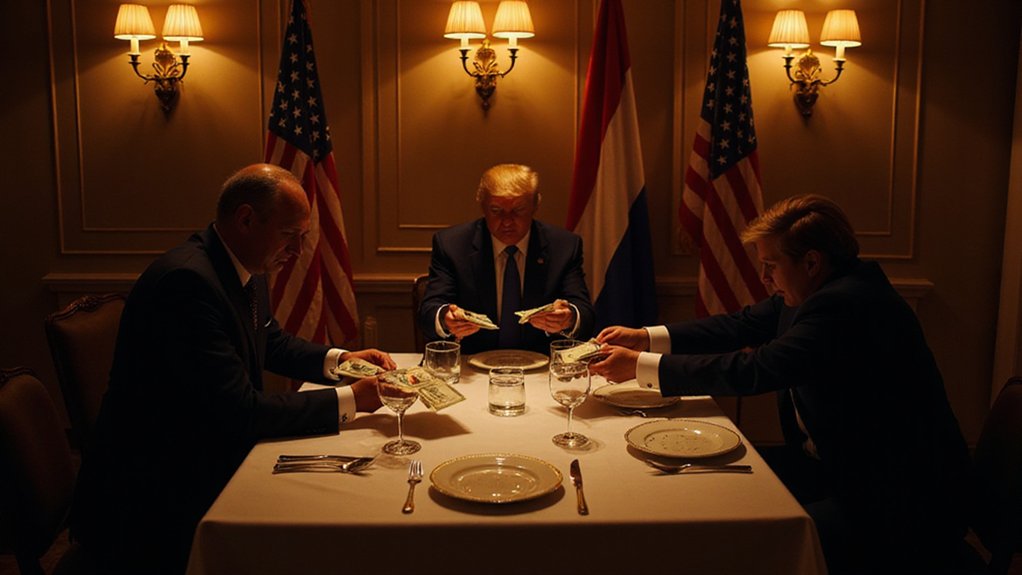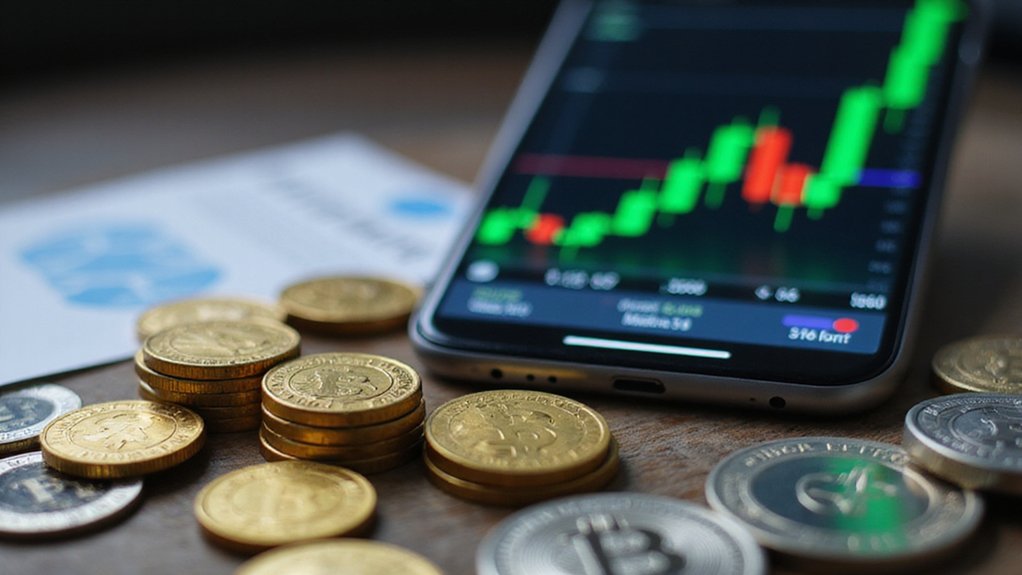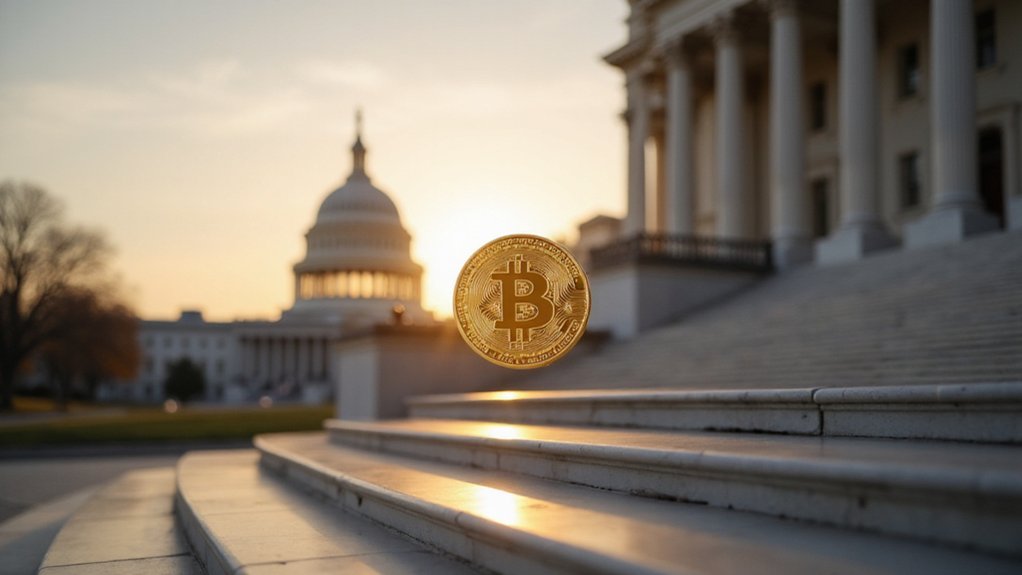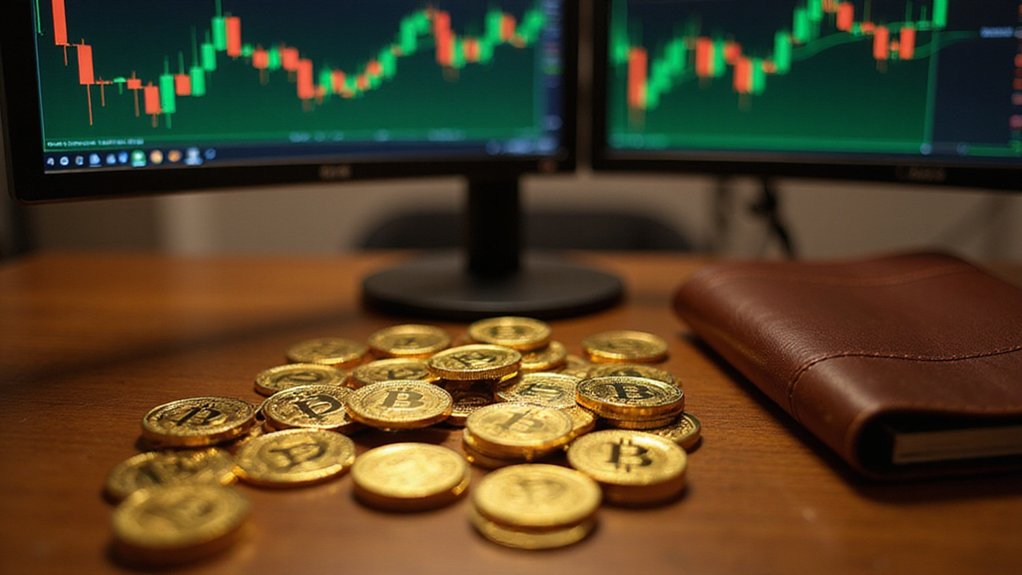How much does a seat at the table of American political power cost?
Approximately $148 million, it seems, if the recent crypto-fueled dinner auction with former President Trump serves as our metric.
The May 2025 event—dubbed “EXCLUSIVEITATION the world” in promotional materials—offered the top 220 holders of $TRUMP meme coin access to Trump National Golf Club in Sterling, Virginia, with VIP treatment reserved for the 25 most prolific investors.
The financial architecture of this arrangement warrants scrutiny, particularly given the international composition of participants.
A democracy for sale demands inspection when foreign wallets hold the keys to presidential access.
The leading wallet, ominously labeled “SUN,” contained $18.5 million in tokens and belongs to HTX, a Seychelles-based exchange.
This wallet connects to Justin Sun, the Chinese cryptocurrency entrepreneur who serves on HTX’s board and attended the dinner personally—raising uncomfortable questions about foreign capital’s proximity to potential presidential authority.
Democratic legislators have responded with predictable alarm.
Representative Maxine Waters led Capitol steps denunciations while colleagues drafted legislation aimed at prohibiting presidents, vice presidents, and lawmakers from crypto self-enrichment schemes.
The Republican caucus, perhaps unsurprisingly, has shown little enthusiasm for provisions targeting their standard-bearer’s financial innovations.
This controversy coincides with Bitcoin’s significant price rally above $90,000, with record ETF inflows demonstrating growing institutional confidence in cryptocurrency markets.
Progressive watchdogs haven’t minced words, labeling the dinner “corruption embodied” and “astonishingly corrupt.”
The criticism centers on the naked transactionality: access for sale to the highest bidder, regardless of origin or interest.
When significant holdings trace back to entities in Singapore, Hong Kong, and other international jurisdictions, concerns about foreign influence naturally compound.
Senator Chris Murphy has gone further, describing the scheme as the “most corrupt act” by a president in American history.
The dinner’s structure—particularly the international capital flows it incentivized—creates a troubling precedent for American governance.
When $400 million in crypto assets becomes the admission price for proximity to potential presidential power, we’ve moved beyond conventional campaign finance problems into uncharted territory where foreign nationals can leverage digital assets to purchase influence.
The event prohibited all video equipment at the dinner, raising further questions about transparency and what might have been discussed behind closed doors.
As cryptocurrencies continue blurring traditional financial boundaries, this dinner exemplifies how digital assets might circumvent established guardrails against foreign political influence—a development that should concern citizens regardless of partisan affiliation.









